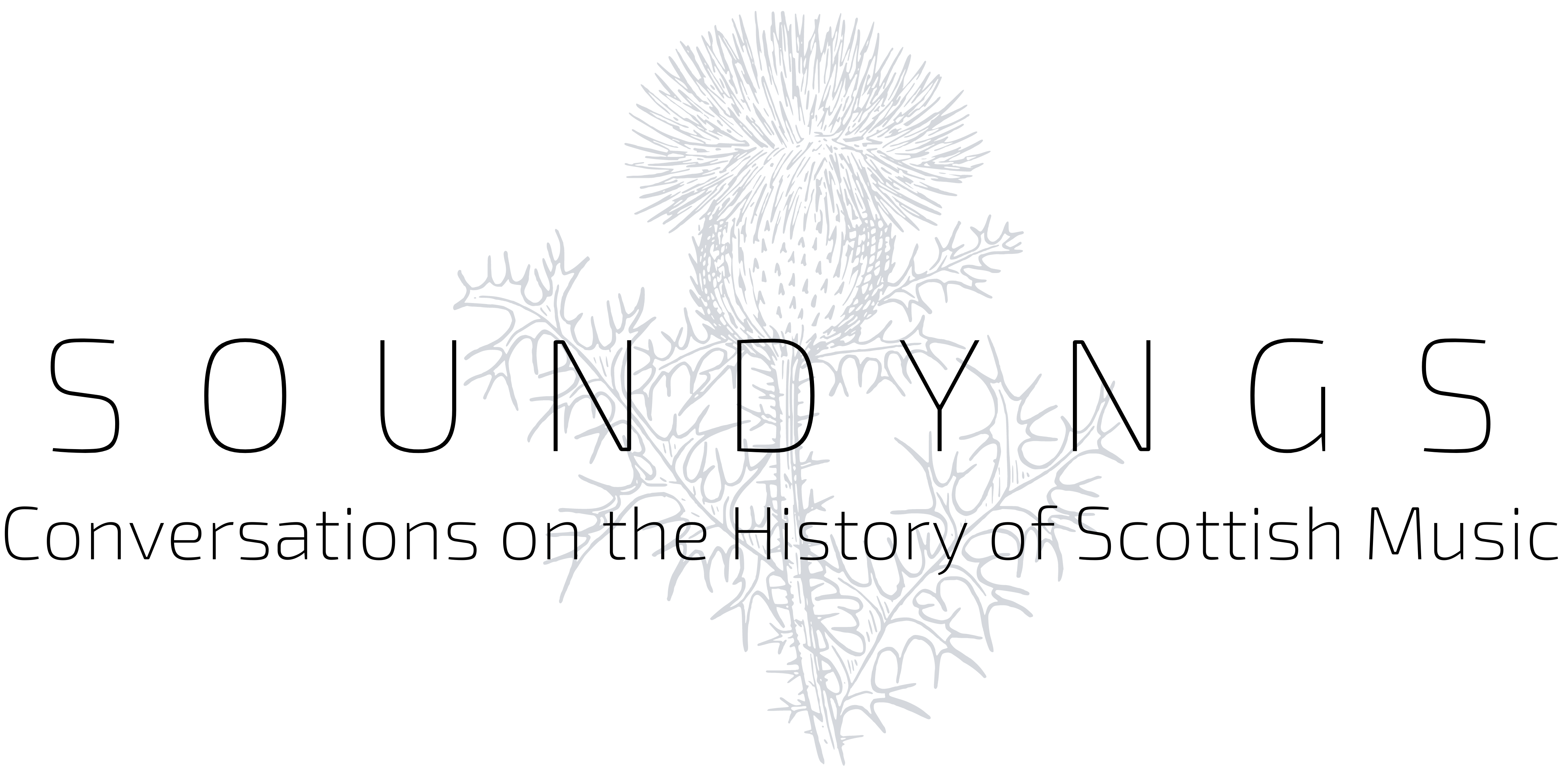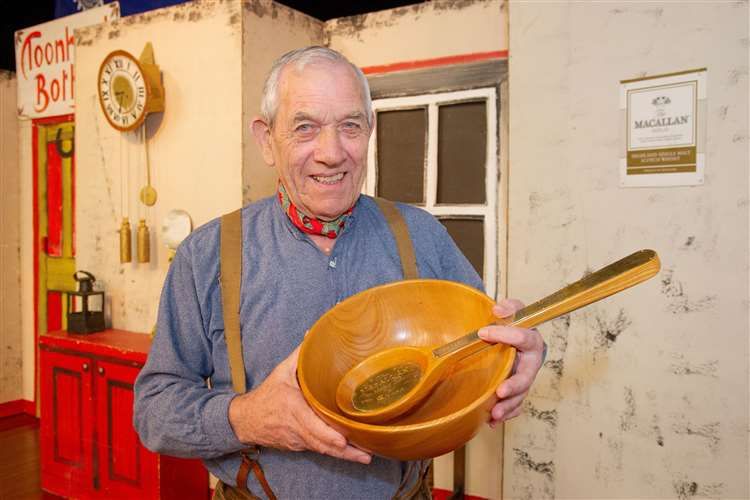Image: Joe Aitken winning the Bothy Ballands Champion of Champions in 2020, photo credit Daniel Forsyth, from Grampian Online.
The Scottish traditional music world was recently sad to learn that Joe Aitken from Kirriemuir, Angus, had passed away at the age of 79 this April, 2024. Joe had won the prestigious Elgin Bothy Ballads ‘Champion of Champions’ awards no less than 7 time over 30+ years of competing, and was well-loved all over the world for his performances of these traditional agricultural songs.
Joe Aitken’s family owned a farm, and he learned his songs in situ, although not actually needing to travel about as the original songsters of the 19th century did. He could hear them from older relatives who might had still have had some contact with the working conditions described, or at least, be one generation closer to this reality. Joe’s actual work included driving fuel tanks and transportation trucks, and being a part-time fireman – so not simply a farmer (see Grampian Online’s obituary below). However, for decades, he did indeed travel, in his spare time – to sing. Folk singing is in many respects the new form of contemporary itinerant labour.
Bothy Ballads are a particular historic repertoire from the north east of Scotland – Aberdeenshire and Angus in particular – from the 19th century, when farming had undergone significant shifts in modernisation, but before the age of the petrol-powered tractor, when young men travelled around farms looking for seasonal work. This itinerant workforce was vulnerable and their living conditions could be better or worse dependent on the farm owner. They were employed for fixed periods, and in the hours after work, stayed together in ‘bothies’, cooking for each other using whatever supplies the farm gave them, and singing to pass the time in the evening. Song topics ranged from girls (never enough of these), horses (key to farming before modern tractors), and the virtues and vices of their employers. In Aberdeenshire, the traditional name for such songs was ‘cornkisters’, a term that envisages them being extemporised by men sitting on chests of oatmeal (or ‘kists’) while beating their heels on the side to keep time. The better songs were learned and recirculated. The University of Aberdeen’s website, Elphinstone Kist, lists many (see Further Reading).
The idea of ‘bothy ballads’ as a distinct repertoire was curated for those outside of the oral circles of transmission by key collections such as Ord’s Bothy Ballads and Songs (1930), a work published some time after the songs had ceased to be entirely topical. Ord captured a repertoire at a time when changing conditions meant that its memory was fragile, and did the North East a great service in preserving the memory of these songs.
Academic writing on the kind of competitions that Joe Aitken was so successful in for so many years has contemplated the ways that historic identities are re-constructed in association with modern Scottish socio-economic realities (see Further Reading, Knox and Russell). Competitions today are significantly sponsored by Scottish businesses such as whisky distillers, and the idea of supreme excellence in singing (e.g. the ‘champion of champions’ award) is a neat brand match for premier-brand producers of a major national product. Ian Russell’s article provides a good description of how the modern competitions work, along with notes about the ballad repertoire that is performed. Dan Knox has written about the contemporary performance of bothy ballads as a kind of touristic ‘reperformance’ and used that troublesome word ‘authenticity’ which signals anthropological anxiety over forms of appropriation.
Soundyngs suggests that worrying about ‘authenticity’ is not so helpful on the ground. Reading the obituaries and retrospectives written about Joe Aitken, it’s clear that he and other singers of this material are helping to remind people in their parts of Scotland that they are – indeed, we are all – sitting on and dependent on the land beneath our feet. Sitting in Fife, I’m appreciating Joe’s version of Matt Armour’s song, ‘Generations of Change’, with words about Armour’s farming community in the East Neuk. It reminds us office workers of the people we rely on to keep food in our mouths. That seems valuable work, and we should be grateful to those who celebrate this work in song.
Further Reading
- Song lyrics – Bothy Ballads’ Elphinstone Kist, Univesity of Aberdeen https://www.abdn.ac.uk/elphinstone/kist/category/bothy-ballads/ Dan Knox, ‘Spectacular tradition Scottish folksong and authenticity’, Annals of Tourism Research 35(1), 2008: 255-273
- Lewis McBlane, ‘Joe Aitken remembered after greatest Bothy Ballads champion dies, as archive pictures show Champion of Champion wins at Elgin Town Hall in Moray, in Grampian Online (April 5th 2024)
- John Ord, Bothy Songs and Ballads of Aberdeen, Banff & Moray, Angus and the Mearns, with a new introduction by Alexander Fenton (Edinburgh, John Donald, 2001), first published 1930.
- Ian Russell, ‘Competing with Ballads (and Whisky?): the Construction, Celebration, and Commercialization of North-East Scottish Identity, Folk Music Journal 9(2), (2007): 170-191, 288.
- Pete Shepherd, ‘Sad News. Joe Aitken, Champion o the Bothy Ballads, has passed away’. Doric Board, April 4th 2024).
Further Listening
- ‘Joe Aitken Singing in Elgin at the Champion of Champions in 2020‘, Youtube accessed April 19 2024
- ‘Joe Aitken singing “Generations of Change”, words by Matt Armour‘, Youtube accessed April 19 2024 –
- Springthyme records – for recordings by Joe and many others

